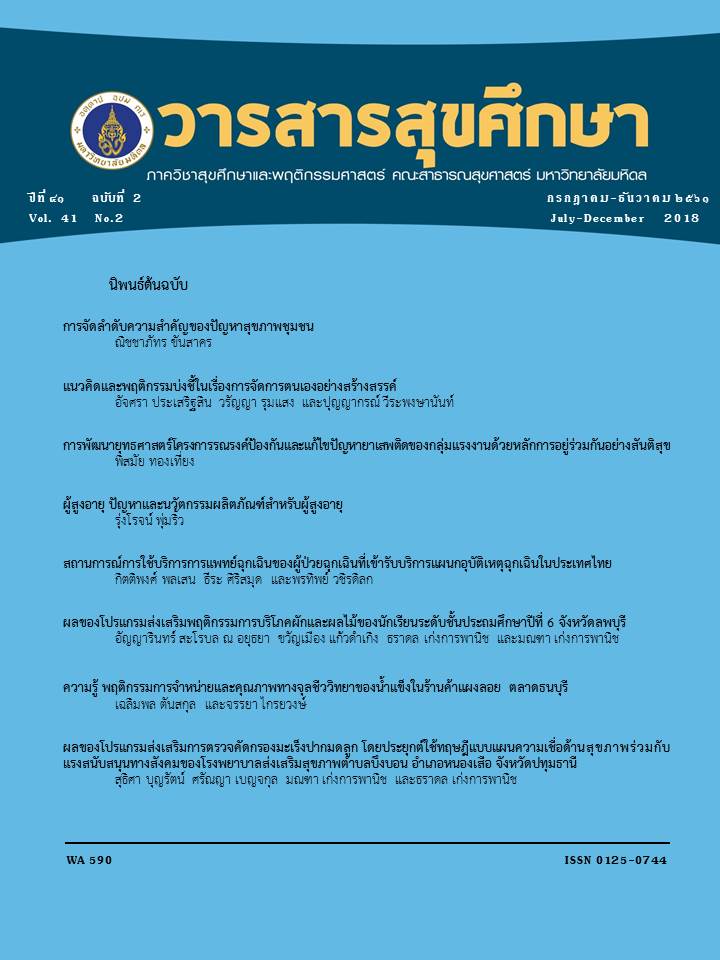An Application of Social Cognitive Theory to Promote Healthy Food Consumption of Fifth Grade Students in One Elementary School in Rayong Province
Keywords:
Social Cognitive Theory, Food Consumption Behaviors, Primary School StudentsAbstract
The objective of this quasi-experimental research was to assess the effect of healthy food consumption promotion program for students in primary school level. The study samples were 57 fifth grade students who were selected by inclusion criteria and simple random sampling that divided into two groups: 28 students in the experimental group and 29 in the comparison group. The experimental group received the healthy food consumption program activities, that the framework of Social Cognitive Theory was applied, for 9 weeks.The activities comprised of knowledge enhancement by lecture with slides and VDO, doing group work with work sheet, discussion and presentation, and learning through food for student games. Suitable food selection skills development by food cooking practices; role playing; learning from live and symbolic models; painting; providing social support by researcher; individually sending reminding and advise; and using portfolio notebook with parents were included. Data was collected before and after experimentation using a self-administered questionnaire and analyzed by frequency, percent, mean standard deviation, Paired t-test, and Independent t-test. Results of the study showed that after the experiment, the experimental group gained significantly higher knowledge, attitude, self-efficacy, and practices regarding food consumption according to nutritional guidelines than before the experiment and higher than that of the comparison group with p<0.05.It should be concluded that the healthy food consumption program, that the Social Cognitive Theory was applied, affect the increasing of knowledge, attitude, self-efficacy, and suitable food consumption practices among the students. Therefore, it should be applied for other student groups who have similar context to enhance better food consumption for better health.



